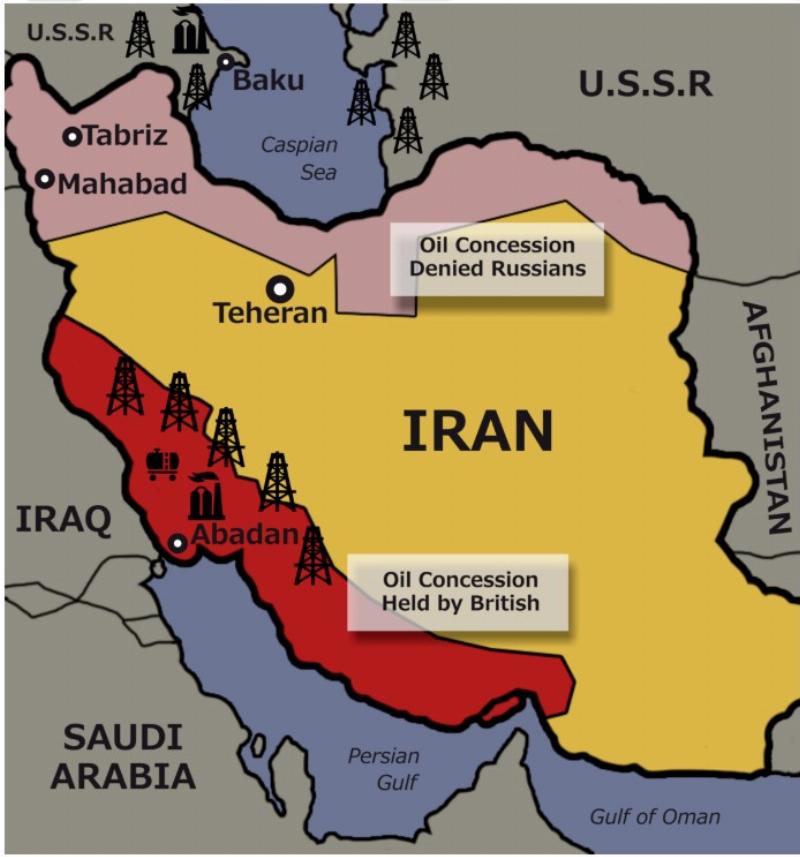


Since 1979, Iran’s regime hasn’t just waged ideological or military campaigns — it has conducted a relentless, calculated war on America’s economic well-being.
From oil shocks that gutted wallets to terror sponsorship that drained defense budgets, the Islamic Republic has struck repeatedly at the very foundations of American prosperity. And now, as Israel confronts Iranian proxies on the battlefield, it’s more than a foreign policy issue — it’s a matter of national self-defense.
This isn’t about abstract diplomacy. It’s about the real-world costs Americans have paid for Tehran’s aggression — decade after decade. Every time you filled up at the pump and winced, every time inflation surged, every time jobs vanished from the energy sector, there’s a good chance the fingerprints of the mullahs in Tehran were on it.
In 1979, the Iranian revolution cut the nation’s oil output nearly in half — dropping from 6 million barrels per day in 1974 to 3.2 million by 1980. That one shift sent global oil prices soaring, costing American families an extra $35 billion per year in gasoline and heating bills. The hostage crisis that same year halted $12 billion in annual trade, disrupting agriculture and manufacturing exports—collapsing markets for American farmers and small businesses almost overnight.
As oil surged from $13 to $34 per barrel, the broader economic toll hit $70 billion in lost GDP. Jobs disappeared, gas lines stretched for miles, and inflation tore through household budgets. All of it stemmed from Iran’s ideological chaos.
During the Iran-Iraq War, which lasted from 1980 to 1988, Iran’s attacks on oil tankers in the Persian Gulf jeopardized 20% of global shipments. U.S. import costs ballooned by $20 billion annually, hammering working families. To keep oil flowing, the U.S. launched Operation Earnest Will, spending $500 million to defend shipping lanes. Those were taxpayer dollars diverted from schools and infrastructure to clean up Tehran’s mess.
Worse still, Iran’s backing of Hezbollah led to the 1983 bombing in Beirut that killed 241 U.S. Marines. In response, Washington poured $1.2 billion into Middle East security. That wasn’t foreign aid — it was a defense bill forced by Tehran’s terrorism.
By the 1990s, Iran’s nuclear ambitions prompted U.S. sanctions. American companies lost $1.5 billion annually in blocked energy contracts, bleeding away jobs that belonged to skilled American workers. And even as sanctions bit, Iran evaded them. In 1996, the regime smuggled oil into global markets, artificially deflating prices. That maneuver cost American consumers $10 billion in added fuel expenses and devastated independent oil producers.
Terror didn’t stop, either. The Khobar Towers bombing in Saudi Arabia killed 19 Americans. In its aftermath, the U.S. spent $800 million on security upgrades — all to counter Iranian-backed threats.
From 2011 to 2015, tougher sanctions aimed at halting Iran’s nuclear progress cut their oil exports by 1.5 million barrels per day. But it also drove up global prices by 10%, costing American consumers $25 billion annually in higher energy bills. The regime’s defiance carried a steep price for average families.
Yet Iran kept cheating. In 2018, it evaded sanctions to sell oil to China and other nations, costing the U.S. economy $15 billion in lost trade opportunities. This wasn’t theoretical—it was real money lost by American workers and exporters. Then came the 2019 drone strikes on Saudi oil facilities, orchestrated by Tehran. Oil prices spiked 15%, draining an extra $18 billion from American drivers’ wallets. Tehran didn’t just hit a refinery—it hit every family’s budget.
In 2023, Iran was exporting 1.3 million barrels of oil per day despite sanctions. That price manipulation slashed $10 billion in revenue from U.S. oil producers—hurting jobs in Texas, North Dakota, and beyond while Iran funneled the proceeds to terrorist proxies.
Now, Iran is launching drones and missiles directly at Israel. These aren’t isolated skirmishes — they’re a continuation of the same reckless hostility that has cost the U.S. economically for over four-and-a-half decades.
The American public deserves to understand what’s at stake. This isn’t about being pro-Israel for its own sake — it’s about opposing a regime that has spent generations draining American resources, attacking U.S. allies, and undermining our economy. Tehran’s hands have been in the pocket of every American who’s ever paid too much at the pump or watched a job vanish from the energy sector.
The time for soft-handed diplomacy is over. Decades of economic sabotage, proxy terror, and sanctions evasion have proved one thing: Iran’s regime doesn’t respond to appeasement. It ruthlessly exploits any opening in view. Standing with Israel in this moment isn’t just a strategic move—it’s a moral and economic necessity. Because in the end, this isn’t just Israel’s fight. It’s America’s fight, too.
Dr. Joseph Ford Cotto hosts and produces News Sight, speaking the data-driven truth about economic and political issues that impact you. During the 2024 presidential election, he created the Five-Point Forecast, which correctly predicted Trump's national victory and the outcome in all swing states. The author of numerous nonfiction books, Cotto holds a doctorate in business administration and is a Lean Six Sigma Certified Black Belt. During 2014, HLM King Kigeli V of Rwanda bestowed a hereditary knighthood upon him. It was followed by a barony the next year.
